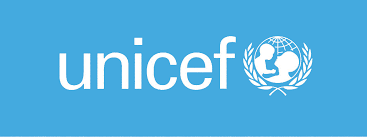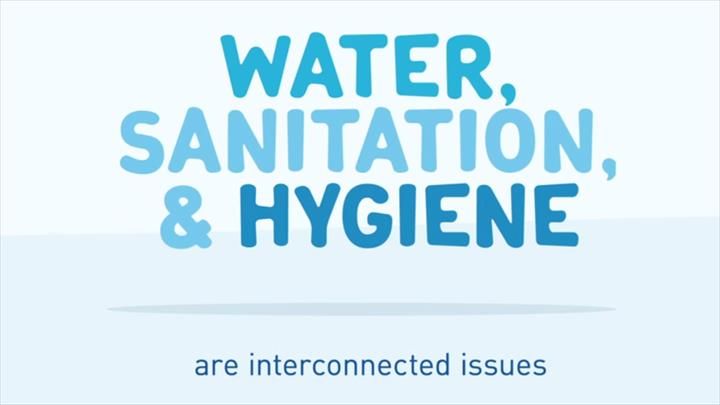Strategy for Water, Sanitation and Hygiene (2016-2030)
Published on by Robert Brears, Founder of Our Future Water, Young Water Leaders, Mitidaption & Author (Springer Nature, Wiley) in Social
The 2030 Agenda for Sustainable Development offers a historic opportunity to set a new course for the next era of global human development – one that promises transformational change for children and their families.

Water, sanitation and hygiene (WASH) is at the centre of this ambitious new agenda – with a distinct sector goal (SDG 6) that envisions universal, sustainable, and equitable access to safe drinking water, sanitation and hygiene, as well as the elimination of open defecation by 2030.
WASH also contributes to numerous other goals, including those relating to nutrition, health, education, poverty and economic growth, urban services, gender equality, resilience and climate change.
The human rights to water and sanitation are at the core of the UNICEF mandate for children. Not only are poor hygiene, open defecation, and lack of access to safe water and sanitation systems leading causes of child mortality and morbidity, they also contribute to undernutrition and stunting, and act as barriers to education for girls and to economic opportunity for the poor.
WASH is essential in health care facilities, schools and early childhood development centres, but equally, these institutions offer platforms for engaging children in actions that promote behaviour change related to hygiene, sanitation and water.
The SDGs set a high bar of “safely managed” water and sanitation services and yet for many the right to even a basic level of access remains unmet.
As of 2016, sanitation coverage is low in many countries and 946 million people are still engaged in the practice of open defecation. Gains in water supply coverage are unevenly spread; water quality is not assured; water scarcity is a growing problem; and the sustainability of systems continues to pose challenges. The destructive impacts of climate change and emergencies are an increasing threat to water and sanitation systems, and are contributing to disparities in access. Vulnerable groups – including isolated communities, poor households, people with disabilities, and in particular women and girls – bear the brunt of inadequate WASH services.
UNICEF’s vision for WASH is the realization of the human rights to water and sanitation for all. This Strategy will help fulfil this vision and contribute to global efforts to meet the water and sanitation Sustainable Development Goal – SDG6 – and the broader SDG agenda, targeting priority interventions for children.
UNICEF will focus on water, sanitation and hygiene in households and institutions, with two overarching objectives, which align with the first two SDG 6 targets:
By 2030, achieve universal and equitable access to safe and affordable drinking water for all;
By 2030, achieve access to adequate and equitable sanitation and hygiene for all and end open defecation, paying special attention to the needs of women and girls and those in vulnerable situations.
UNICEF’s core accountability will be to act where children do not have even a basic level of service. We will also address the more ambitious goal of “safely managed” services embedded in SDG 6, as that is critical to addressing inequalities and sustaining the gains that have been made over the past 20 years.

The balance between interventions focusing on a basic level of service and on moving people up the ladder towards safely managed services will be informed by the specific situation.
This Strategy provides guidance on which approaches could be used in different contexts, leaving discretion with UNICEF’s country offices to work with governments to decide on the most effective programmatic focus.
The Strategy builds on lessons from existing programmes and experiences, while introducing new areas of emphasis.
These include greater engagement with partners in urban areas, to help ensure that children are reached wherever they are; mainstreaming risk-informed programming to mitigate the impact of climate change and emergencies; and more extensive involvement with the private sector and other new partners to encourage innovation and programming at scale.
UNICEF support will emphasize establishing strong national systems, effective sector institutions, and a strong accountability framework recognizing that these are key pre-requisites for the long-term sustainability of WASH services.
UNICEF will focus on supporting poor people to claim their rights, to help government become more responsive to the voices of the marginalized, and to build government’s capacity to create the enabling environment for service delivery.
UNICEF programming will also continue to deliver services and supplies in the following contexts: (i) in times of crisis for humanitarian response; (ii) for modelling innovative solutions; and (iii) for reaching the poorest and most marginalized groups where no one else is able to do so. This includes results such as enabling WASH facilities to be accessible to children with disabilities, and promoting safe and hygienic facilities and practices for menstrual hygiene management for adolescent girls.
UNICEF will act as a key advocate for children within the WASH sector by accelerating efforts to generate evidence on children and WASH and using our influence and convening power to prioritize children.
UNICEF will utilize its own resources to leverage financing for children working with partners on innovative financing modalities for WASH, with a focus on domestic resources. UNICEF will emphasize support for sustainable markets for goods and services that meet the needs of the poor.
 We will continue to provide leadership in coordinating and responding to emergencies due to natural disaster, conflict, and public health crises, while also working to strengthen the linkage between humanitarian and development programming.
We will continue to provide leadership in coordinating and responding to emergencies due to natural disaster, conflict, and public health crises, while also working to strengthen the linkage between humanitarian and development programming.
Investing in stronger systems during times of stability mitigates the impact and cost of emergencies when they arise, and thus humanitarian and development programme efforts should be complementary.
Complementarity also means that emergency response programmes should work when possible within national policy frameworks and engage existing local stakeholders (including the private sector) to contribute to long-term goals and capacity building while responding to immediate humanitarian needs.
The world is rapidly changing: urbanization, migration, impacts from climate change, and more frequent emergencies will all have an impact on how programmes are implemented. At the same time the development landscape is shifting, with increased recognition that goals will only be met with new financing instruments and sources of funding; that partnerships that engage new and different constituencies are key to finding sustainable solutions; and that new actors, including from the private sector, are influencing development agendas.
UNICEF will work with the private sector to provide goods and services, and support efforts to mobilize the broader business community’s contribution to SDG 6.
UNICEF aims to provide programming that is the benchmark of best practice in supporting governments to deliver results for children. This will be endeavoured by applying the resources of the entire organization at all levels; mobilizing and leveraging financing; ensuring the right people are in the right places at the right time; and developing and utilizing evidence, and the knowledge and experience of over 600 WASH professionals working in more than 100 countries.
Source: Relief Web
Media
Taxonomy
- Water Resources
- Conservation
- Sustainability
- Climate Change
- Integrated Watershed Management
- Transboundary Water Resources Management
- Climate Change Adaptation
- Sustainable Sanitation
- Water Security
- Climate Change Resilience
- Integrated Water Resources Management (IWRM)